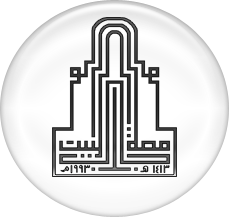| DC Field | Value | Language |
|---|
| dc.contributor.author | محمد السواعدة | - |
| dc.contributor.author | عائشة السواعدة | - |
| dc.date.accessioned | 2021-12-16T11:01:23Z | - |
| dc.date.available | 2021-12-16T11:01:23Z | - |
| dc.date.issued | 2021-01-18 | - |
| dc.identifier.uri | http://hdl.handle.net/123456789/2178 | - |
| dc.description.abstract | ملخص
يتناول هذا البحث مادة (قُدْس) في القرآن الكريم، ودراستها دراسة دلالية سياقية، وذلك بهدف الكشف عن تقاليب هذه المادة، وإبراز الألفاظ المقاربة للفظها، وإدراك الفروقات بينها، وإظهار دلالاتها في سياق الآيات التي وردت فيها، وإثبات اختصاص كل لفظة بسياقها الذي وردت فيه، مما يكشف عن رافد مهم من روافد الإعجاز القرآني.
وقد كشفت الدراسة أن المادة جاءت دلالاتها اللغوية في الاستعمال القرآني بما يناسب السياق، وبما لا يمكن استبداله بلفظة أخرى مهما كانت مقاربة لها في المعنى، وذلك من خلال دراسة استقرائية وتحليلية لهذه المادة.
الكلمات الدالة: سياق، قدس، دراسة دلالية.
The Semantic Indication of the Item (Quds)
in the Holy Qur’an
Abstract
This study sheds light with the item (holiness) in the Holy Qur’an and studies it with a semantic contextual study, With the aim of disclosing the changes of this article, highlighting the utterances close to its pronouncement, recognizing the differences between them, showing its meaning in the context of the verses in which they are mentioned, and proving the meaning of each word in its context in which it is mentioned, Which reveals an important tributary of the Quranic miracles.
The study revealed that the material had its linguistic meaning in the Qur’anic usage as appropriate to the context, and that it cannot be replaced by another word, whatever it's close in meaning, through an inductive and analytical study of this artical.
Key words: Text, Quds, Semantic Study. | en_US |
| dc.subject | الكلمات الدالة: سياق، قدس، دراسة دلالية. | en_US |
| dc.title | مادة (قدس) في القرآن الكريم "دراسة دلالية سياقية" | en_US |
| dc.type | Other | en_US |
| Appears in Collections: | المجلد 17، عدد 4 لسنة 2021
|

